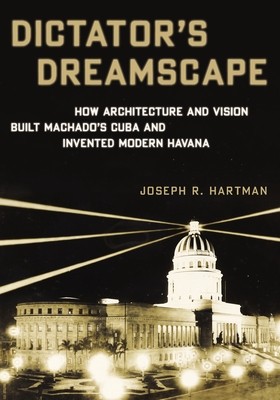
- We will send in 10–14 business days.
- Author: Joseph R Hartman
- Publisher: University of Pittsburgh Press
- ISBN-10: 0822945460
- ISBN-13: 9780822945468
- Format: 18.5 x 24.4 x 2.5 cm, kieti viršeliai
- Language: English
- SAVE -10% with code: EXTRA
Reviews
Description
Joseph Hartman focuses on the public works campaign of Cuban president, and later dictator, Gerardo Machado. Political histories often condemn Machado as a US-puppet dictator, overthrown in a labor revolt and popular revolution in 1933. Architectural histories tend to catalogue his regime's public works as derivatives of US and European models. Dictator's Dreamscape reassesses the regime's public works program as a highly nuanced visual project embedded in centuries-old representations of Cuba alongside wider debates on the nature of art and architecture in general, especially in regards to globalization and the spread of US-style consumerism. The cultural production overseen by Machado gives a fresh and greatly broadened perspective on his regime's accomplishments, failures, and crimes. The book addresses the regime's architectural program as a visual and architectonic response to debates over Cuban national identity, US imperialism, and Machado's own cult of personality.
EXTRA 10 % discount with code: EXTRA
The promotion ends in 21d.22:25:46
The discount code is valid when purchasing from 10 €. Discounts do not stack.
- Author: Joseph R Hartman
- Publisher: University of Pittsburgh Press
- ISBN-10: 0822945460
- ISBN-13: 9780822945468
- Format: 18.5 x 24.4 x 2.5 cm, kieti viršeliai
- Language: English English
Joseph Hartman focuses on the public works campaign of Cuban president, and later dictator, Gerardo Machado. Political histories often condemn Machado as a US-puppet dictator, overthrown in a labor revolt and popular revolution in 1933. Architectural histories tend to catalogue his regime's public works as derivatives of US and European models. Dictator's Dreamscape reassesses the regime's public works program as a highly nuanced visual project embedded in centuries-old representations of Cuba alongside wider debates on the nature of art and architecture in general, especially in regards to globalization and the spread of US-style consumerism. The cultural production overseen by Machado gives a fresh and greatly broadened perspective on his regime's accomplishments, failures, and crimes. The book addresses the regime's architectural program as a visual and architectonic response to debates over Cuban national identity, US imperialism, and Machado's own cult of personality.


Reviews